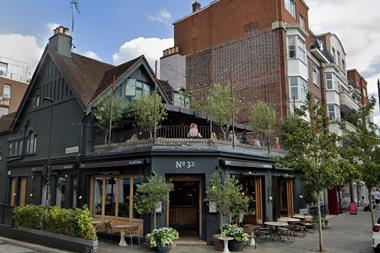The British Retail Consortium said today will be the toughest quarterly rents payments day for at least 18 years.
It is warning landlords to show more flexibility on retail rents otherwise further retailers will go into administration.
It said hard-pressed retailers face rent bills totalling hundreds of millions of pounds while the first few months of the year usually see the lowest levels of consumer spending.
Traditionally commercial landlords demand rents be paid in advance, four times a year, on the quarter days.
But the BRC said it is an 'anachronism dating back hundreds of years to the days when horseback was the fastest means of communication.'
The BRC is also calling for the abolition of upward-only rent clauses, which allow landlords to increase rents each year regardless of economic conditions, and is asking the Government to put an immediate freeze on all new business rates burdens.
Stephen Robertson, BRC director general, said: 'A dismal Christmas for many retailers and following the year’s lowest spending months has meant the toughest quarter day since the early 1990s.
'A thriving retail sector is essential for the health of landlords and the wider UK economy. Boarded up shops are becoming commonplace. An unrealistic payments regime can only increase the pressure on hard-pressed retailers and the jobs they support.
'Some landlords have recognised this ancient anachronism is even more unjustifiable in the toughest trading conditions for years. I urge all landlords to show the same flexibility.'
By the end of this year 140,000 shops will be vacant and 200,000 retail jobs will have been lost, according to Experian.
Property owners and investors, led by the British Property Federation (BPF) have sought to defuse the row by offering major concessions including changing leases to allow for monthly rent payments and reducing service charges, which pay for shared energy and facilities, like lifts.
John Richards, chief executive of Hammerson, who own Leicester’s Highcross shopping centre and part of the Bullring in Birmingham, said: 'Landlords are generally open-minded in discussions with their tenants on matters of affordability and short term financial pressures. We’re working extremely hard to understand the problems our tenants face on a unit-by-unit basis. We see no merit in having an adversarial relationship with them.'
BPF chief executive Liz Peace admits that the recession has damaged the image of the property industry, and stresses that maintaining close relationships with tenants will be important for landlords’ efforts to turn this around.
She said: 'We need to remember that many large landlords are actually the pension funds and financial institutions that manage the savings of the man in the street. Their investors are not faceless moneymen but members of the public who have their pensions and savings tied up in shops or offices. Demanding massive concessions will not only hurt future development but hit the financial well-being of savers - the general public – who are already suffering from tiny interest rates on deposits.
'There is no easy answer when we’re suffering the worst downturn for nearly a century and clearly there is scope for negotiation and for easing the burden. This is exactly what the leading landlords have been doing. But landlords are suffering just as much as retailers. Clearly the terms of leases – including quarterly payments – were agreed freely by both sides and you simply can’t rip up thousands of contracts on the fly. But ultimately, common sense tells you that no landlord will want a bankrupt tenant and an empty building. They need rent like retailers need sales.'





























No comments yet